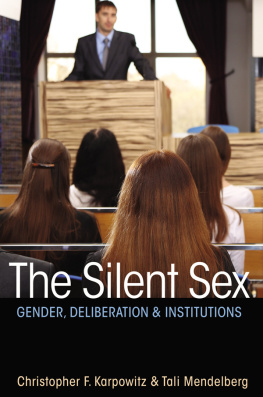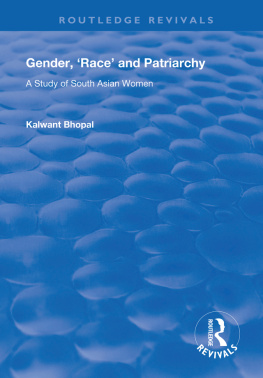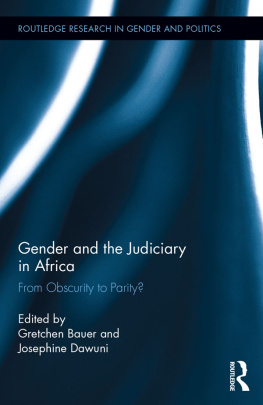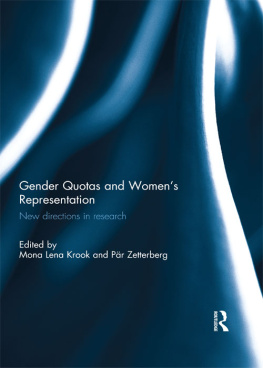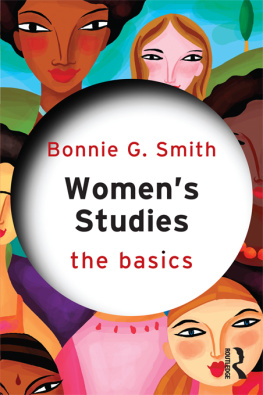The Silent Sex
The Silent Sex
GENDER, DELIBERATION, AND INSTITUTIONS
Christopher F. Karpowitz
and
Tali Mendelberg
PRINCETON UNIVERSITY PRESS
PRINCETON AND OXFORD
Copyright 2014 by Princeton University Press
Published by Princeton University Press, 41 William Street,
Princeton, New Jersey 08540
In the United Kingdom: Princeton University Press, 6 Oxford Street,
Woodstock, Oxfordshire OX20 1TW
press.princeton.edu
Jacket photograph Africa Studio/Shutterstock. Jacket design by Lorraine Doneker.
All Rights Reserved
Library of Congress Cataloging-in-Publication Data
Karpowitz, Christopher F., 1969
The silent sex : gender, deliberation, and
institutions / Christopher F. Karpowitz, Tali Mendelberg.
pages cm
Summary: Do women participate in and influence meetings equally with men? Does gender shape how a meeting is run and whose voices are heard? The Silent Sex shows how the gender composition and rules of a deliberative body dramatically affect who speaks, how the group interacts, the kinds of issues the group takes up, whose voices prevail, and what the group ultimately decides. It argues that efforts to improve the representation of women will fall short unless they address institutional rules that impede womens voices. Using groundbreaking experimental research supplemented with analysis of school boards, Christopher Karpowitz and Tali Mendelberg demonstrate how the effects of rules depend on womens numbers, so that small numbers are not fatal with a consensus process, but consensus is not always beneficial when there are large numbers of women. Men and women enter deliberative settings facing different expectations about their influence and authority. Karpowitz and Mendelberg reveal how the wrong institutional rules can exacerbate womens deficit of authority while the right rules can close it, and, in the process, establish more cooperative norms of group behavior and more generous policies for the disadvantaged. Rules and numbers have far-reaching implications for the representation of women and their interests. Bringing clarity and insight to one of todays most contentious debates, The Silent Sex provides important new findings on ways to bring womens voices into the conversation on matters of common concernProvided by publisher.
Includes bibliographical references and index.
ISBN 978-0-691-15975-1 (hardback) ISBN 978-0-691-15976-8 (paperback) 1. Corporate meetings. 2. Women. 3. Social participation. 4. Social interaction. 5. Social groups 6. Social psychology. I. Mendelberg, Tali. II. Title.
HD2743.K295 2014
302.35dc23
2014008938
British Library Cataloging-in-Publication Data is available
This book has been composed in Minion and Avant Garde
Printed on acid-free paper.
Printed in the United States of America
1 3 5 7 9 10 8 6 4 2
To Caleb, Quinn,
Cami, and Zach,
and to Leora and Dani
our children, whose beloved voices are created equal.
Contents
Illustrations
Tables
Acknowledgments
T HIS PROJECT HAS BEEN A LONG-TERM UNDERTAKING, and we are extremely grateful to the many people who made it possible. First we thank our families for their love and support. Tali wishes to thank her parents, Hava and Uri Mendelberg, her brother and sister-in-law, Gabi and Jill Mendelberg, and her daughters, Leora and Daniella Paradise. She also thanks her dear friends Gil Blitz and Jody Kirtner for their encouragement. Chris thanks his parents, Dennis and Diane Karpowitz, his five siblings, his children Caleb, Quinn, Cami, and Zach, and above all his unfailingly supportive wife, Jordan.
We want to thank our coauthors on parts of this book that originate in papers: Lee Shaker on verbal participation, Nick Goedert on issue mentions, and Baxter Oliphant on interruptions. We owe Baxter an extra debt of gratitude for the many difficult hours he put in to assist with the challenging coding of interruptions. Each started out as a dedicated research assistant and transitioned into a collaborator, and we are very grateful for each phase of our association with them.
We received invaluable feedback and encouragement from colleagues. First we wish to thank Marty Gilens, an exemplary colleague and friend who read every word, took the time to really think things through, and provided essential guidance. We are also extremely grateful to Amy Lerman, Chris Achen, Markus Prior, Susan Fiske, and Pat Egan, who read the draft manuscript and spent a full day discussing it with us. The faculty research seminar at Brigham Young University provided especially helpful early feedback on several chapters, and the enthusiasm of the BYU faculty for the project encouraged us to press forward. Valerie Hudson and Jessica Preece served as insightful discussants at these events, and Dan Nielson offered generous and wise insights on early versions of several chapters. BYU colleagues Jeremy Pope, Quin Monson, and Kelly Patterson provided unstinting support and encouragement at multiple points along the way. Kathy Cramer Walsh, Michele Epstein, Amaney Jamal, Cindy Kam, Yanna Krupnikov, Nan Keohane, Jane Mansbridge, and Steve Macedo also provided helpful comments on parts of this project. Additional helpful comments came from the West Coast Experiments Conference, the NYU CESS Experiments Conference, Princeton Universitys CSDP seminar, and participants at various meetings and workshops, including the Harvard Kennedy School Women in Public Policy Program. We thank our former editor Chuck Myers for his ongoing interest in the project and for an insightful conversation that prompted us to conduct our analysis of school boards. Two reviewers for the Princeton University Press provided extremely helpful suggestions for revision. Tali also wishes to thank Lynn Sanders and Oliver Avens for early stimulating conversations on deliberation, and Don Kinder and Virginia Sapiro for formative teaching. We both thank Larry Bartels for his generous mentorship.
Funding was generously provided by the Center for Advanced Study in the Behavioral Sciences, BYU (including a Mentored Environment Grant and substantial support from the College of Family, Home, and Social Sciences, the Political Science Department, and the Center for the Study of Elections and Democracy), and Princeton University (we especially thank former chairs Jeff Herbst and Helen Milner, the Bobst Center and the CSDP). Money cant buy you love, but it buys nearly everything elselabor, which leads to time, which leads to mental focus, which leads to creativity and productivity.
We were also fortunate to have the help of talented undergraduate and graduate assistants. We thank Dan Myers, Lisa Argyle, and Oleg Bespalov for running many of the sessions. Quite simply, our rich data set would not exist without their long hours and commitment to the project. Early assistance came from Steve Howell, Dusan Zaric, and Jason Teeple. We are indebted to Jesse Mudrick for spending a year of his life listening to and deciphering phrases such as yeah, you know, that thought, but what if, I agree, we wouldnt want, not that, you know, umm, [unintelligible]. Kabir Khanna provided careful, smart, and extremely helpful edits on the final manuscript. We also thank Matt Barnes, Joy Yang, Adriana Estor, Lois Lee, Oliver Bloom, Dan Chen, Alex Simon, Gabriela Gonzalez, Hayden Galloway, Josephine Borich Shipley, Bobby Purks, Krista Frederico, Greg Baker, Alex Bitter, Ashley Erickson, Jason Harrington, Kris Mahoney, Brooke Rieder, Michael Sheflo, Katherine McCabe, Luke Bell, the invaluable Chris McConnell, and Kyrene Gibb, who is suited to run a country or at least a corporationwe are incredibly lucky that she put her formidable talents to work managing our challenging though comparatively puny school boards project.

